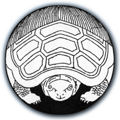Earlier this month I was delighted to learn that the Vancouver Public Library had selected “My Year of Meats” as the 2007 choice for One Book One Vancouver, a municipal reading program described as “a book club for the entire city.” It’s the oldest program of its kind in Canada, and it’s been great. I’ve been going down to Vancouver every couple of weeks to do events of various kinds, but the highlights have been the visits to the branch libraries, where I’ve had a chance to meet with smaller groups of readers and talk about the novel and the issues that it raises. This month, we'll be screening film, “Halving the Bones,” on Tuesday, June 11, and the program culminates at the Word on the Street festival in September.
I was especially moved when I heard about the selection because I wrote “My Year of Meats” while living in Vancouver in 1996-7, and I did most of the research for that book at the Vancouver Public Library. I remember how excited I was when I first visited the Central Library. I was really hard up for money that year, and I felt like I’d just won the lottery. The grand new building had just opened, and it was so airy and bright, with lots of crannies to curl up in, and carrels with electrical outlets, and even a food court with good coffee right outside. I would bike across the Georgia Viaduct from East Vancouver, where I was living at the time, grab a coffee, and then hit the stacks, searching for books on the meat, food and pharmaceutical industries, on synthetic hormones and antibiotic resistance, on the media and television and cultural theory, on roadside attractions in America. Other times I’d just wander, following some inchoate and undeniable pull toward Cannibalism, say, or Paleogeography, or Parapsychology.
Browsing the stacks is one of the true pleasures of a library. You walk slowly along with your head cocked, neck bent at a 90 degree angle and eyes perpendicular to the floor, skimming the shelves and letting the words drift from the spines into your subconscious where (you hope) they will spark new ideas and associations you’d never have thought of if you’d known what you were looking for. Occasionally, (frequently), you’ll reach out and pull a book off from the shelf and flip quickly through it, maybe adding it to the pile that’s growing in your arms. You’ll take it home. Maybe you’ll read it, or maybe just having it on your desk, largely unread, for three weeks will be enough to inspire. So much of fiction writing depends on the random factor, the fortuitous juxtaposition of mood and word and place that gives rise to the quirk of a character or the twist of a plot, so writers are browsers, culling for luck. You increase your odds by browsing, and true browsability can only be achieved in a real library, with real stacks, filled with real books on shelves. The digital world is infinitely rich in ideas and information, and keywords, metatag clouds and search engines greatly enhance its browsability, but nothing compares to the physical act of lurking in the stacks.
When I finished the draft of “My Year of Meats,” I took out books on How to Get Your Novel Published. I learned How To Write An Effective Query Letter, and How To Format A Manuscript For Submission, and How To Get an Agent. And I did these things. “My Year of Meats” owes its existence largely to what I learned at the public library.
So, this is why I am so happy that this particular book was chosen, but there’s another reason, too, which is that libraries are miracles of public munificence in an age of privatized corporate greed. Think about it. Imagine if there were no libraries, anywhere. The concept does not exist. And a politician comes up with this idea and goes to the legislature with a proposal. “I propose we take millions, no, billions of taxpayer dollars, and hire the most famous architects in the world to design and construct monumental landmark buildings in all of the big cities, and the small cities, too, and, hell, even the littlest towns, and when the buildings are built, we’ll fill ‘em up with books of all different kinds, which represent the entirety of human knowledge and experience, and then we’ll pass out these cards, see, and everyone, even people who don’t have any money or property, can come into the library and find the books they want to read, and take ‘em home and read ‘em! For free! Won’t that be great!?”
Uh huh. Right.
So we’re really lucky to have libraries, and we should use them all the time, and I'm happy to be the poster child for the library to which I am so deeply and gladly indebted.
Libraries will get you though times of no money better than money will get you through times of no libraries.
